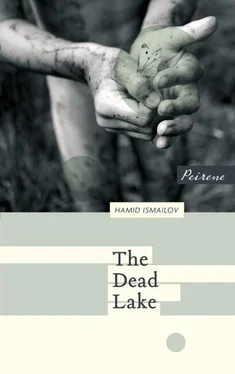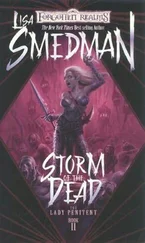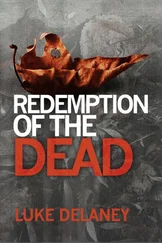For anyone who has never lived in the steppe, it is hard to understand how it is possible to exist surrounded by this wilderness on all sides. But those who have lived here since time out of mind know how rich and variable the steppe is. How multicoloured the sky above. How fluid the air all around. How varied the plants. How innumerable the animals in it and above it. A dust storm can spring up out of nowhere. A yellow whirlwind can suddenly start twirling round the air in the distance in the same way that women spin camel wool into twine. The entire, imponderable weight of that immense, heavy sky can suddenly whistle across the becalmed, submissive land…
As he grew, Yerzhan noticed all the subtle shades and gradations of the road they followed to Petko’s music lessons. And that road seemed like music to him: it was just as fluent, the sounds were just as varied. The notes of the wind swayed on the little tamarisk and saltwort shrubs. Shrews and ground squirrels sang the second and third voices.
At home, Grandad’s severe, wrinkled face seemed to the boy like the Bach violin concerto that he was learning to play. Shaken’s tedious cheerfulness was like Kreisler’s Miniature Viennese March , which they had decided not to bother learning at all. Kepek’s dumb behaviour was like Gaviniès’s endless études. And his Aisulu’s pink-cheeked little face was Vivaldi’s Winter , which the Bulgarian Petko played with ecstatic gusto during the late Kazakh summer.
And only the women, including the city bride Baichichek, did Yerzhan still associate with the monotonous sounds of the old-fashioned dombra .
The joy of the steppe, the joy of music and the joy of childhood always coexisted in Yerzhan with the anticipation of that inescapable, terrible, abominable thing that came as a rumbling and a trembling, and then a swirling, sweeping tornado from the Zone. At such times Uncle Shaken was usually away on his work shift. But on the rare occasions when he was at home, he, Grandad Daulet and Uncle Kepek argued non-stop while they were locked inside with the families for several days. Shaken, who was blamed for everything that was happening, lit up like the steppe itself when there was a blast. He preached to the others that it was more than just an atom bomb. It was our Soviet response to the arms race, without which we would all have been gone a long time ago. But the blasts were necessary for peaceful purposes too. In order to build communism! ‘It is our absolute duty not merely to catch up with, but to overtake the Americans! In case there’s a third world war!’ he concluded with his hallmark phrase. ‘Stop giving us the propaganda line!’ Grandad replied, equally heated. He had fought in both world wars: in the first he dug trenches in the rear and in the second he had reached the Elbe on foot, and fraternized with the Americans there. ‘There’s nothing in the world worth fighting a war for! I understand the railway, it transports people and cargo – that’s good for everyone! But what good does your atom-schmatom do? You’ve turned the entire steppe into a desert! You never see a gerbil or a fox!’
‘And the menfolk can’t get it up any more!’ Kepek intervened with an incomprehensible assertion of his own, which made Shaken look away shamefacedly.
One day in late autumn, after one of these periods of incarceration with long arguments, Shaken went to the city and brought a television back home. ‘If I can’t do it, let this educate you!’ he announced.
With the arrival of the television in Uncle Shaken’s house, the radiogram spontaneously migrated to Grandad Daulet’s, and now Dean Reed, backed up by red-cheeked Aisulu’s ‘Liza, Liza, Liza, Lizabet’, sang out fearlessly for Yerzhan alone. Moreover, Yerzhan’s and Aisulu’s days were now clearly divided into daytime and evening. The daytime, which had to be survived – with the music, with Dean Reed, with running around the steppe, with forays to the wagons on the siding, with absolutely anything. And the evening time, which had to be reached in order to immerse oneself, like sinking into sleep, in that little television, with its alluring blue glow in the early autumn or winter darkness. Cartoons, concerts, films, the television news and especially the music which started the main news. Shaken called the news music ‘Forward, Time!’ as proudly as if he had composed it himself. Yerzhan and Aisulu never missed a single programme until they fell asleep, exhausted, right there in front of the television, collapsing on the felt rug.
And then on New Year’s Eve Dean Reed himself appeared on the ‘Blue Light’ programme. He looked exactly like he did on the sleeve of his record – tall, slim and handsome. And what’s more, as if he knew Aisulu’s secret request, he started singing her favourite song, ‘Liza, Liza, Liza, Lizabet’. After that, whenever Yerzhan started playing his violin, picking out either Kogan or Dean Reed, he tied his mother’s black silk scarf round his neck as his bow tie. Like Dean Reed.
He knew for certain who he was going to look like when he grew up.
* * *
How Yerzhan yearned to look like Dean Reed! In his dreams he saw himself with the same kind of handsome features and long hair. But not only in his dreams! Even when he was wide awake he imagined that he was this good-looking American man. Especially when he watched his own lengthening shadow. He held his violin like a guitar and twirled round so that his shadow squirmed about on the ground. ‘We’ve got to keep searching, searching, she’ll be by my side, follow the sun…’ He got so used to his image that when he happened to glance by chance into his mother’s mirror, he was dumbfounded at the sight of his own face, expecting to see the face printed on the sleeve of the LP.
Thanks to Grandad Daulet, Yerzhan had learnt to play the dombra ; thanks to Uncle Shaken he had encountered the violin; thanks to Uncle Kepek he had acquired his teacher, Petko; thanks to Petko he had learnt music and Russian and even acquired Dean Reed. And thanks to Dean Reed he had learnt to read, since he wanted to find out everything about this tall, handsome, happy man. Now Uncle Shaken would often bring back newspapers and magazines from the city for him, Rovesnik – My Age – or Krugozor – Outlook. And from them Yerzhan learnt, letter by letter, about the life of his idol. ‘Maria, Maria, Maria,’ Yerzhan chirped on his camel. ‘Bam bam bamba’ Petko heard the boy sing, and filled in the gaps in Yerzhan’s knowledge about Dean Reed, whom he had seen once in a Moscow television studio. Yerzhan was enraptured by these stories, but he didn’t show it. After all, he already knew how jealous Grandad was of his violin. So if Petko ever found out from Uncle Kepek that Yerzhan at home dropped his bow and grabbed his violin like a guitar to make his lengthening shadow look like Dean Reed, how jealous would the teacher be!
Not much troubled Yerzhan in those days. There were of course the explosions in the Zone, which the boy never called by their proper name out of visceral fear. But besides that he had only one other worry: which side in the third world war would Dean Reed be on? With his head full of the constant arguments between Shaken and Grandad Daulet about the imminent third world war and his nightmares of little silver planes suddenly turning into iron eagles and diving at him as if he were a fox cub, running across the steppe, unable to find a burrow or any kind of refuge from the rumbling, or the darkening sky, or the new sun rising in the black sky, or the mushroom hanging over the steppe, Yerzhan would wake soaked in sweat, curled up tight like a fox cub, and think in horror, afraid to move: Which side was Dean Reed on?
Who could he tell about these nocturnal fears? Petko and all the others believed he was a faithful disciple of Leonid Kogan. So with whom could he share his torments about Dean Reed?
Читать дальше












